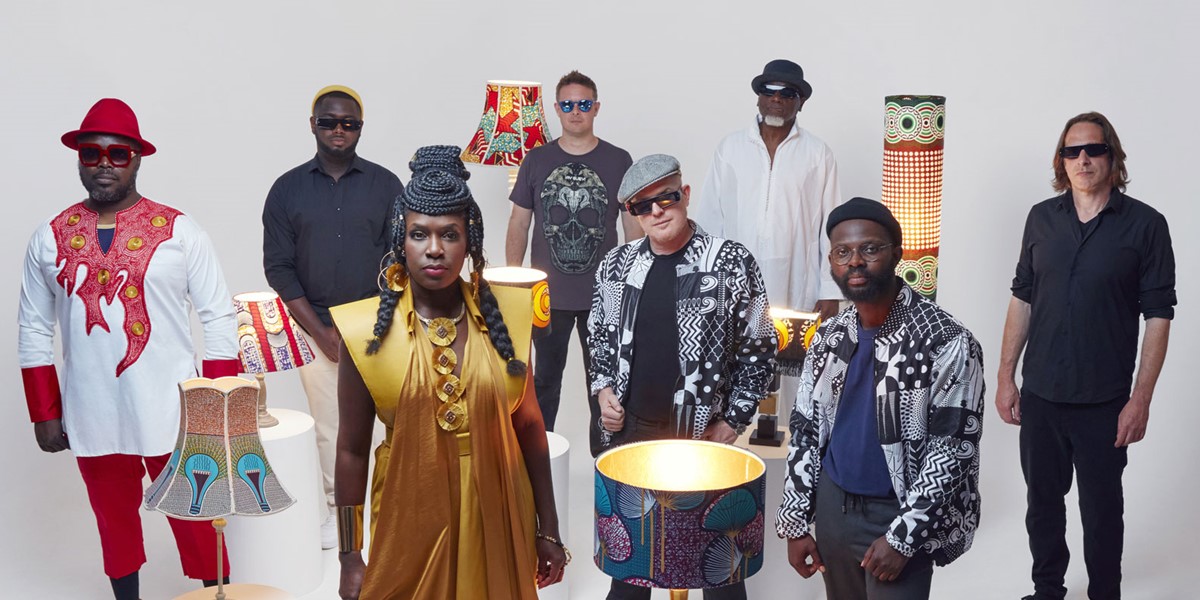Thursday, May 26, 2022
Ibibio Sound Machine on their album Electricity and breaking down musical boundaries
By Lucy Hallam
Meeting Ibibio Sound Machine, the groove-riding octet funking up southern Nigerian culture in the shadow of adversity

Ibibio Sound Machine (photography: Simon Webb)

Register now to continue reading

Thanks for visiting the Songlines website, your guide to an extraordinary world of music and culture. Sign up for a free account now to enjoy:
- Free access to 2 subscriber-only articles and album reviews every month
- Unlimited access to our news and awards pages
- Our regular email newsletters

